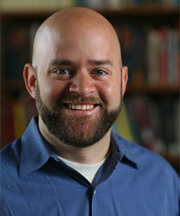
O. Carter Snead, associate professor of law in the Notre Dame Law School, will speak at the inaugural meeting of the Neuroethics Society on Nov. 13 and 14 at the American Association for the Advancement of Science headquarters in Washington, D.C.
The meeting will include a debate on cognitive enhancement and sessions on such topics as deep brain stimulation, pediatric bipolar disorder, the use of neuroscience in law enforcement and national security, and decision-making and free will.
Snead will speak at a Nov. 13 session titledDebate on Cognitive Enhancement.
Sneads research focuses on the intersection of law and bioethics. His scholarship explores the possibility, mechanisms, and wisdom of the governance of science, medicine, and biotechnology according to ethical principals.
A member of the Notre Dame faculty since 2005, he is the former general counsel for the Presidents Council on Bioethics, a White House advisory committee, and principal author of the councils 2004 report on the regulation of new biotechnologies affecting assisted reproduction, human embryo research and genetics.
In 2007, Snead was appointed, along with Edmund Pellegrino, chair of the Presidents Council on Bioethics, to be the permanent observer for the U.S. government at the Council of Europes Steering Committee on Bioethics (CDBI). In that capacity, he assists the CDBI in its efforts to elaborate international instruments and standards for the ethical governance of science and medicine.
This year, Snead was appointed to a four-year term on UNESCOs International Bioethics Committee, a 36-member body of independent experts that advises member states on bioethics, law and public policy.
The Neuroethics Society is an interdisciplinary group of scholars, scientists and clinicians who share an interest in the social, legal, ethical and policy implications of advances in neuroscience.
TopicID: 30146